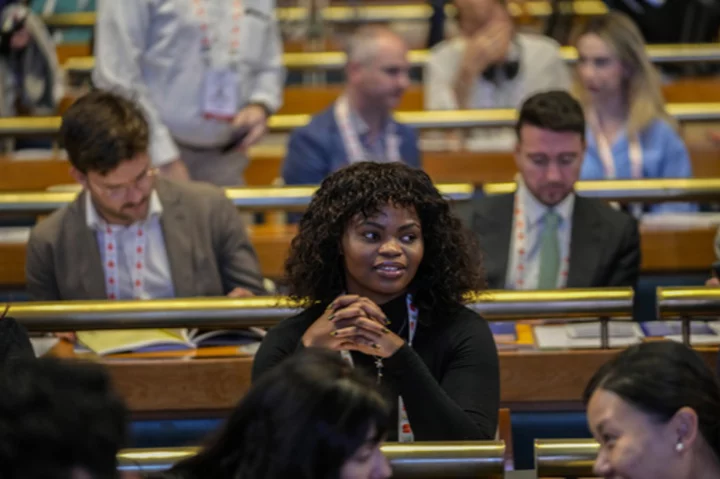SRINAGAR, India (AP) — Delegates from the Group of 20 leading rich and developing nations began a meeting on tourism in Indian-controlled Kashmir on Monday that was condemned by China and Pakistan, as authorities reduced the visibility of security in the disputed region’s main city.
The meeting is the first significant international event in Kashmir since New Delhi stripped the Muslim-majority region of its semi-autonomy in 2019. Indian authorities hope the meeting will show that the contentious changes have brought peace and prosperity to the region.
The delegates will discuss topics such as ecotourism, destination management and the role of films in promoting tourist destinations.
The main city of Srinagar appeared calm on Monday and roads were unusually clean. Most of the usual security checkpoints had been removed or camouflaged with G20 signs. Officials said hundreds of officers were specially trained in what they called “invisible policing” for the event.
Shops in the city center opened earlier than usual after officials asked shopkeepers to remain open. Many shops in the past have closed in protests against Indian policies in the region. But authorities shut many schools in the city.
Mondays’ measures contrasted sharply with the visible security imposed in the days before the event. A massive security cordon was placed around the venue on the shore of Dal Lake, with elite naval commandos patrolling the water in rubber boats. The city’s commercial center was spruced up, with freshly black-topped roads leading to the convention center and power poles lit in the colors of India’s national flag.
Indian-controlled Kashmir remains one of the world’s most heavily militarized territories, with hundreds of thousands of troops. In 1989, a violent separatist insurgency erupted in the region seeking independence or a merger with Pakistan, which also controls part of Kashmir. India replied with a brutal counterinsurgency campaign, and tens of thousands of civilians, soldiers and rebels have been killed in the conflict.
India’s crackdown intensified after 2019 when New Delhi took the region under its direct control. Since then, the territory’s people and its media have been largely silenced. Authorities have seized scores of homes and arrested hundreds of people under stringent anti-terror laws. The government says such actions are necessary to stop a “terror ecosystem,” or civilian support for the armed rebellion.
Authorities have also enacted new laws that critics and many Kashmiris fear could transform the region’s demographics.
Indian federal Minister Jitendra Singh told attendees on Monday that Kashmir is changing.
″If such an event was held earlier, a strike call would be given from Islamabad and shops on Residency Road (in) Srinagar would close. Now there is no hartal (strike)," he said. “Common people on the streets of Srinagar want to move on.”
Last week, the U.N. special rapporteur on minority issues, Fernand de Varennes, said the meeting would support a “facade of normalcy” while “massive human rights violations” continue in the region. India’s mission at the U.N. in Geneva rejected the statement as “baseless” and “unwarranted allegations.”
India’s tourism secretary, Arvind Singh, said on Saturday that the meeting was “not only to showcase (Kashmir’s) potential for tourism but to also signal globally the restoration of stability and normalcy in the region.”
Kashmir, known for rolling Himalayan foothills, has for decades been a major domestic tourist destination. Millions of visitors arrive in Kashmir every year and experience a strange peace kept by ubiquitous security checkpoints, armored vehicles and patrolling soldiers.
The mainstay of Kashmir’s economy, however, continues to be agriculture, and the tourism industry contributes only about 7% to the region’s GDP.
China, with which India is locked in a military standoff along their disputed border in the Ladakh region, has boycotted the event. Pakistan also slammed New Delhi for holding the meeting in Srinagar. Both have argued that such meetings can't be held in disputed territories.
In a speech to lawmakers in Pakistani-controlled Kashmir on Monday, Pakistani Foreign Minister Bilawal Bhutto Zardari said the Srinagar meeting was a “display of India’s arrogance on the world stage" and the region "has become an open prison” for its residents.
India dismissed Pakistan's criticism, saying it is not even a member of the G20.
The G20 has a rolling presidency with a different member setting priorities each year. India is steering the group in 2023.
___
Associated Press writer Munir Ahmed in Islamabad, Pakistan, contributed to this report.

